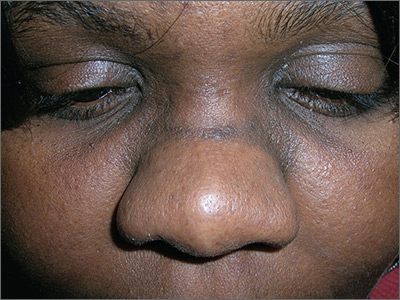Hydrogen Peroxide Receding Gums
Receding gums, also known as gum recession, is a common oral health issue where the gum tissue surrounding the teeth pulls back, exposing more of the tooth and its root. This can lead to sensitivity, pain, and increased risk of tooth decay and loss. One potential DIY remedy that has gained attention for treating receding gums is hydrogen peroxide. But does it really work, and is it safe to use?
To understand the potential benefits and risks of using hydrogen peroxide for receding gums, it’s essential to first grasp the causes and symptoms of gum recession. Gum recession can be caused by a combination of factors, including poor oral hygiene, genetics, hormonal changes, smoking, and aggressive brushing. Symptoms may include sensitive teeth, visible roots, and aesthetic concerns such as uneven gum lines.
Causes of Receding Gums
- Poor Oral Hygiene: Inadequate brushing and flossing can lead to plaque buildup, which causes inflammation and infection of the gums (gingivitis), potentially leading to gum recession.
- Genetics: Some people are more susceptible to gum disease and recession due to their genetic makeup.
- Hormonal Changes: Fluctuations in hormone levels during pregnancy, menopause, or puberty can affect the gums, making them more sensitive and prone to recession.
- Smoking and Tobacco Use: Tobacco use is a significant risk factor for gum recession due to its harmful effects on gum health and overall oral well-being.
- Aggressive Brushing: Using a hard-bristled toothbrush or brushing too vigorously can wear away the gum tissue, leading to recession.
Hydrogen Peroxide and Gum Recession
Hydrogen peroxide is a common household ingredient known for its antiseptic and antibacterial properties. It’s often used as a mouthwash to help reduce plaque, whiten teeth, and freshen breath. The idea behind using hydrogen peroxide for receding gums is that it might help reduce bacteria that contribute to gum disease, potentially slowing down or preventing further recession.
However, the effectiveness of hydrogen peroxide in treating receding gums is not conclusively proven. While it may help in reducing plaque and gingivitis, which are precursors to gum recession, its direct impact on reversing or stopping the recession of gums is not well-documented in scientific literature.
Safety and Precautions
Before using hydrogen peroxide for receding gums, it’s crucial to consider the safety aspects:
- Concentration: The concentration of hydrogen peroxide used is critical. Concentrations as high as 3% or more can be harsh on the gums and other oral tissues, potentially causing irritation or damage. A lower concentration, typically around 1.5% to 2%, might be safer but should still be used with caution.
- Frequency and Duration: Overusing hydrogen peroxide or using it for an extended period can have adverse effects, including enamel erosion and increased sensitivity.
- Professional Advice: It’s highly recommended to consult with a dentist before starting any hydrogen peroxide treatment for receding gums. They can provide personalized advice based on the severity of the recession and overall oral health.
Alternative Treatments and Prevention
While hydrogen peroxide might offer some benefits in maintaining oral health, it’s essential to explore other treatments and preventive measures for receding gums:
- Professional Deep Cleaning: Regular dental cleanings can help prevent and manage gum disease.
- Desensitizing Toothpaste: For sensitive teeth caused by gum recession.
- Gum Grafting: A surgical procedure to repair the receded gums.
- Good Oral Hygiene Practices: Regular, gentle brushing and flossing, along with regular dental check-ups.
Conclusion
While hydrogen peroxide may have some potential benefits for oral health, its use for treating receding gums should be approached with caution and ideally under the guidance of a dental professional. Maintaining good oral hygiene, avoiding harmful habits like smoking, and regular dental check-ups are crucial for preventing and managing gum recession. For those considering hydrogen peroxide as a treatment, it’s vital to weigh the potential benefits against the risks and to explore other evidence-backed treatments and preventive measures.
Can hydrogen peroxide regrow receded gums?
+There is no conclusive evidence that hydrogen peroxide can regrow receded gums. While it may help in reducing plaque and bacteria, which can contribute to gum recession, its ability to reverse or halt the recession process is not scientifically proven.
How do I prevent receding gums?
+Preventing receding gums involves maintaining good oral hygiene practices such as regular brushing and flossing, avoiding aggressive brushing, quitting smoking, and attending regular dental check-ups and cleanings. A balanced diet and avoiding sugary or acidic foods can also help.
Can I use hydrogen peroxide as a mouthwash every day?
+It's not recommended to use hydrogen peroxide as a mouthwash daily without consulting a dentist. Overuse can lead to tooth sensitivity, gum irritation, and other oral health issues. Always follow the instructions and consider safer, fluoride-containing mouthwashes for daily use.
In conclusion, while hydrogen peroxide may offer some potential oral health benefits, its effectiveness and safety for treating receding gums necessitate careful consideration and professional dental advice. By understanding the causes of gum recession and adopting a comprehensive approach to oral health, individuals can better prevent and manage this common issue.

